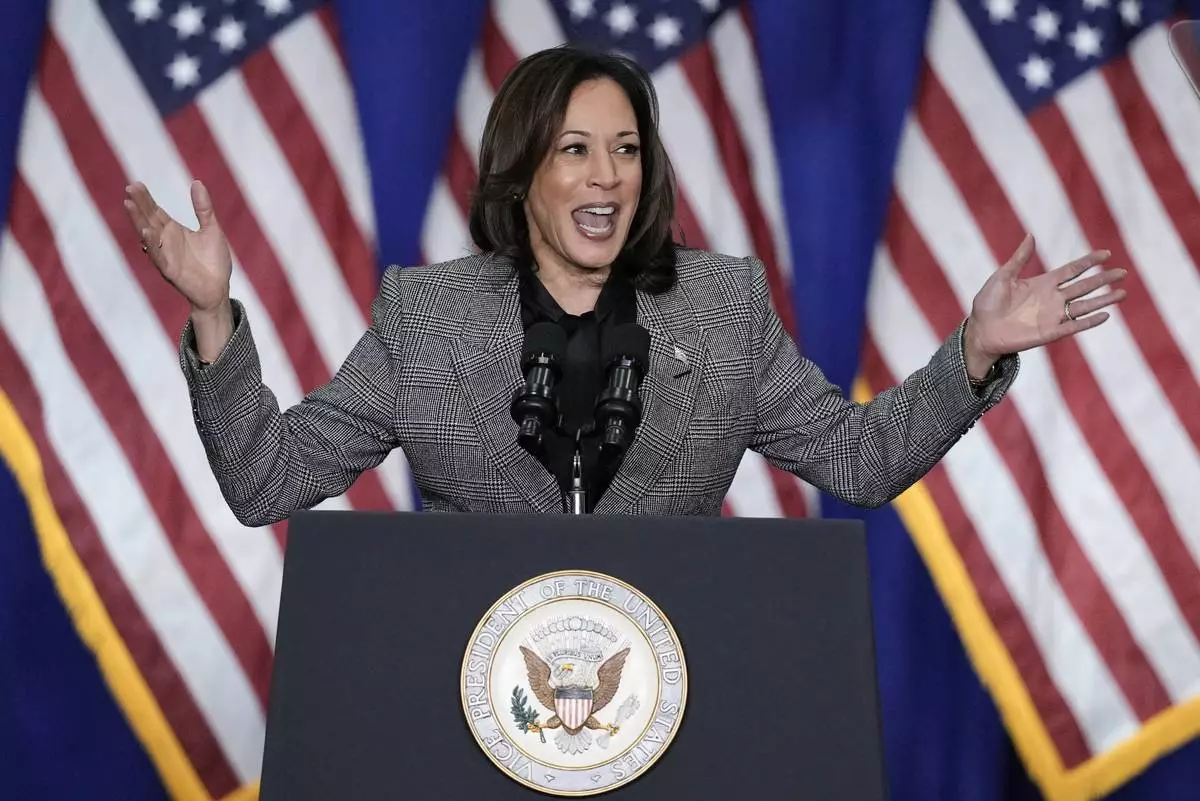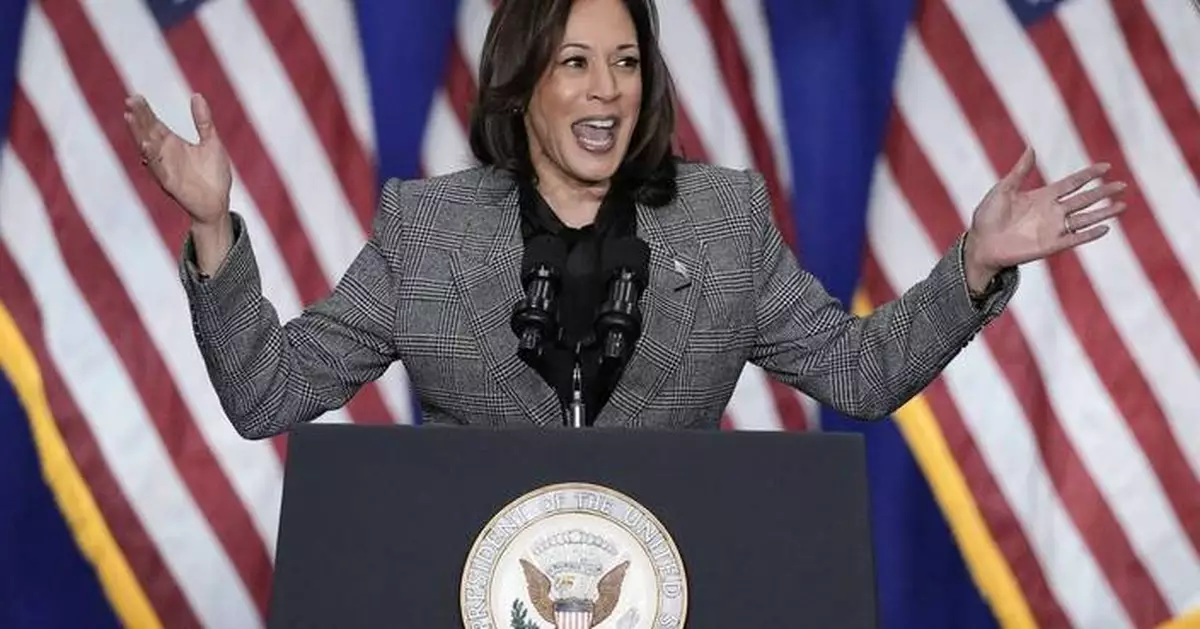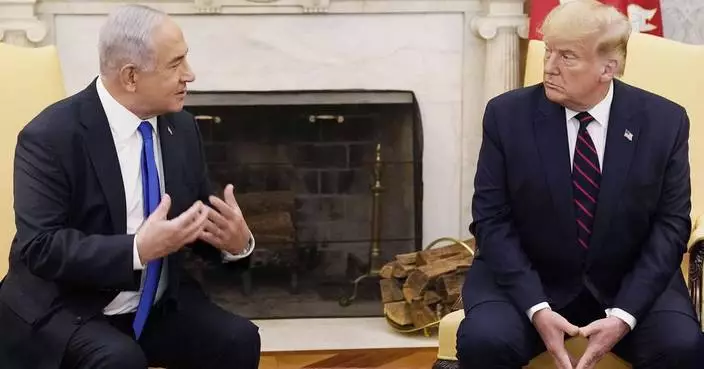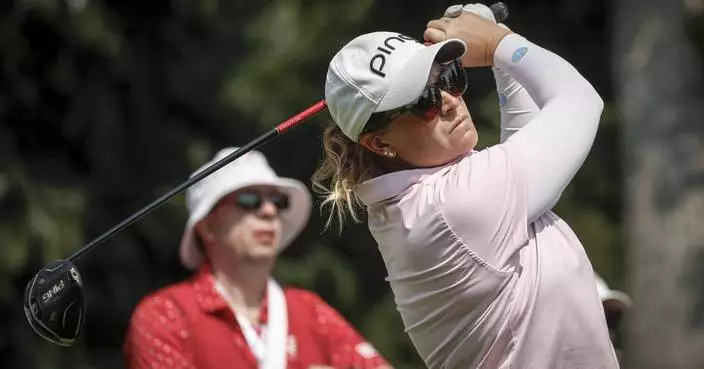WASHINGTON (AP) — Vice President Kamala Harris on Monday said the first rule to set minimum staffing levels at federally funded nursing homes and require that a certain portion of the taxpayer dollars they receive go toward wages for care workers is a long-overdue “milestone” that recognizes their value to society.
Harris announced the rules in Washington before she flew to LaCrosse, Wisconsin to meet with nursing home care employees. In the battleground state, the Democratic vice president also held a campaign event focused on abortion rights.
“It is about time that we start to recognize your value and pay you accordingly and give you the structure and support that you deserve,” Harris told a small group of care workers.
The federal government is for the first time requiring nursing homes to have minimum staffing levels after the COVID-19 pandemic exposed grim realities in poorly staffed facilities. The change will mean more staff at these facilities, fewer emergency room visits for residents and peace of mind for caregivers, who will be able to spend more time with their patients, Harris said.
The vice president said that Medicaid, the federal-state health insurance program for lower-income people, pays $125 billion annually to home health care companies, which were not required to report on how they were spending the money. A second rule being finalized Monday will require that 80% of that money be used to pay workers, instead of administrative or overhead costs, Harris said.
“This is about dignity, and it's about dignity that we as a society owe to those in particular who care for the least of these,” she said.
President Joe Biden first announced his plan to set nursing home staffing levels in his 2022 State of the Union address. Current law only requires that nursing homes have “sufficient” staffing, leaving it up to states for interpretation.
The new rules implement a minimum number of hours that staff members spend with residents. They also require a registered nurse to be available around the clock at federally funded facilities, which are home to about 1.2 million people.
Allies of older adults have sought the regulation for decades, but the rules drew pushback from the nursing home industry.
Mark Parkinson, president of the American Health Care Association, which lobbies for care facilities, said Monday in a statement that the organization was disappointed and troubled that the federal government was moving forward with what he said was an “unfunded mandate.”
“It is unconscionable that the administration is finalizing this rule given our nation’s changing demographics and growing caregiver shortage,” Parkinson said. “Issuing a final rule that demands hundreds of thousands of additional caregivers when there’s a nationwide shortfall of nurses just creates an impossible task for providers.”
Wisconsin Republicans echoed the staffing concerns, noting shortages particularly in rural parts of the state. In Elroy, Wisconsin, for instance, an 80-bed nursing home would be required to hire six additional nurses, but “we simply don't have the bodies,” said Wisconsin state Rep. Tony Kurtz.
Noting the added costs and requirements, Republican U.S. Sen. Ron Johnson bluntly insisted to reporters on a conference call that the rule “might sound good. It won’t work.”
Health and Human Services Secretary Xavier Becerra said the change is about setting a standard for quality of care.
“We believe, that with more and more Americans going to nursing homes, it's time to make sure that quality is the standard that everyone strives for,” Becerra said in an interview.
He said the administration listened to feedback from the nursing home industry and is allowing the rule to be phased in with longer timeframes for nursing homes in rural communities and temporary hardship exemptions in places where it's hard to find staff.
The care event marked Harris' third visit to the battleground state this year and is part of Biden's push to earn the support of union workers in his bid for reelection. Republican presidential challenger Donald Trump made inroads with blue-collar workers in his 2016 victory. Biden regularly calls himself the "most pro-union” president in history and has received endorsements from leading labor groups such as the AFL-CIO, the American Federation of Teachers and the American Federation of State, County and Municipal Employees.
Lisa Gordon, a certified nursing assistant who told Harris, “I've been doing this job for 29 years,” said she was grateful that Biden and the vice president were “finally getting something done.”
“I entered this field because I care about taking care of our elderly,” Gordon said during a talk with other care providers, Chiquita Brooks-Lasure, administrator of the Centers for Medicare and Medicaid Services, and April Verrett, secretary-treasurer of the Service Employees International Union.
“Being short-staffed is not taking care of them like they should be,” Gordon said. “They didn't ask to be there. Your residents are your family. They're your loved ones. We need these changes.”
The coronavirus pandemic, which claimed more than 167,000 nursing home residents in the U.S., exposed the poor staffing levels at the facilities and led many workers to leave the industry. Advocates for the elderly and disabled reported residents who were neglected, going without meals and water or kept in soiled diapers for too long. Experts said staffing levels are the most important marker for quality of care.
The new rules call for staffing equivalent to 3.48 hours per resident per day, just over half an hour of it coming from registered nurses. The government said that means a facility with 100 residents would need two or three registered nurses and 10 or 11 nurse aides as well as two additional nurse staff per shift to meet the new standards.
The average U.S. nursing home already has overall caregiver staffing of about 3.6 hours per resident per day, including RN staffing just above the half-hour mark, but the government said a majority of the country’s roughly 15,000 nursing homes would have to add staff under the new regulation.
The new thresholds are still lower than those that had long been eyed by advocates after a landmark 2001 study funded by the Centers for Medicare and Medicaid Services recommended an average of 4.1 hours of nursing care per resident daily.
Associated Press writer Scott Bauer in Madison, Wisconsin, contributed to this report.

FILE - Vice President Kamala Harris speaks at the International Union of Painters and Allied Trades District Council 7, Monday, Jan. 22, 2024, in Big Bend, Wis. Harris plans to return to Wisconsin next week for her third visit to the battleground state this year. President Joe Biden's campaign announced Thursday, April 18, that Harris plans to campaign in La Crosse on Monday at an event focused on abortion rights (AP Photo/Morry Gash, File)










